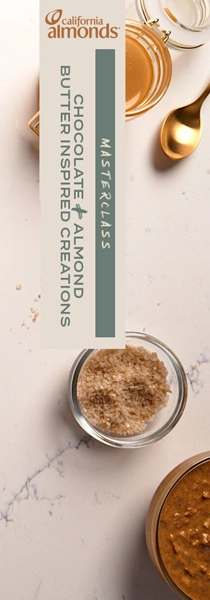
- Industry news
Industry news
- Category news
Category news
- Reports
- Key trends
- Multimedia
- Journal
- Events
- Suppliers
- Home
- Industry news
Industry news
- Category news
Category news
- Reports
- Key trends
- Multimedia
- Events
- Suppliers

The Guidelines are designed to help consumers enjoy all types of beverages by providing them with the information necessary to make informed choices.
10/03/06 To help consumers choose healthy beverages as part of a balanced nutritional diet, the American Journal of Clinical Nutrition has published Healthy Beverage Guidelines proposed by a panel of nutrition experts. The Guidelines are designed to help consumers enjoy all types of beverages by providing them with the information necessary to make informed choices between high-calorie beverages that provide few nutrients and drinks that are low in calories and/or provide nutritional benefits.

The Healthy Beverage Guidelines were funded by the Unilever Health Institute, North America* and created by an independent panel of leading nutrition experts led by Barry Popkin, Director, University of North Carolina, Interdisciplinary Obesity Program. Panel members included: Walter C. Willett (Harvard School of Public Health, Boston, MA), Lawrence E. Armstrong (University of Connecticut Human Performance Laboratory, Storrs, CT), George M. Bray (Louisiana State University Medical Center and Pennington Biomedical Research Center, Baton Rouge, LA), Benjamin Caballero (Johns Hopkins University, Baltimore, MD) and Balz Frei (Linus Pauling Institute, Oregon State University, Corvallis, OR).
To help consumers make healthy beverage choices, the panel segmented beverages into six levels based on caloric and nutrient content as well as related health benefits and risks.
- Level VI: Calorie rich beverages without nutrients (up to one serving, less if trying to lose weight)
- Level V: 100 percent fruit and vegetable juices, whole milk, sports drinks (up to one serving)
- Level IV: Diet beverages with sugar substitutes (up to four servings)
- Level III: Nonfat or low-fat milk and fortified unsweetened soy beverages (up to two servings)
- Level II: Unsweetened coffee and tea -- iced and hot (up to eight servings a day of tea, up to four servings of coffee)
- Level I: Water (up to nine servings for women, up to 13 servings for men)
The expert panel making these recommendations was fully independent. The Unilever Health Institute, North America, Lipton® and Unilever had no power to influence or veto decisions. For more information about the Healthy Beverage Guidelines, visit http://www.lipton.com.
Along with consistent physical activity and eating a diet rich in fruits and vegetables and whole grains, drinking tea is part of a healthy lifestyle. According to a May 2005 research review conducted by a team of researchers at Michigan State University and presented at the American Dietetic Association's (ADA) annual Nutrition News Forecast meeting, tea is a natural source of flavonoid antioxidants and is the main source of flavonoid antioxidants in the US diet. Antioxidants help protect the body from free radical damage.
As part of a healthy diet, regular tea drinking may help maintain a healthy heart. Numerous scientific studies in the U.S. and Europe have been conducted to compare the heart health of regular tea drinkers with those who do not regularly drink tea. Results suggest that people who drink tea may help maintain cardiovascular health as compared to those who don't drink tea but still have a healthy lifestyle.
Tea can be just as effective as water in helping keep people hydrated. It is a common myth that tea or any other caffeine-containing beverage will cause a loss of body fluid and negatively impact the body's hydration level. Scientific evidence simply does not support this belief.
Drinking tea can give your mind a gentle lift that can help you focus. Moreover, unsweetened brewed tea, black or green, is a perfect beverage to use as part of a weight management diet or lifestyle.
LIPTON® Tea, the world's leading tea brand, is available in more than 180 countries worldwide. With more than 100 years of tasting, buying, and blending expertise, Lipton Tea provides today's health-conscious consumer with a variety of convenient, great-tasting, healthy tea products across several beverage formats.
Unilever, one of the world's largest consumer products companies, aims to add vitality to life by meeting everyday needs for nutrition, hygiene and personal care. Each day, around the world, consumers make 150 million decisions to purchase Unilever products. The company has a portfolio of brands that make people feel good, look good and get more out of life.











